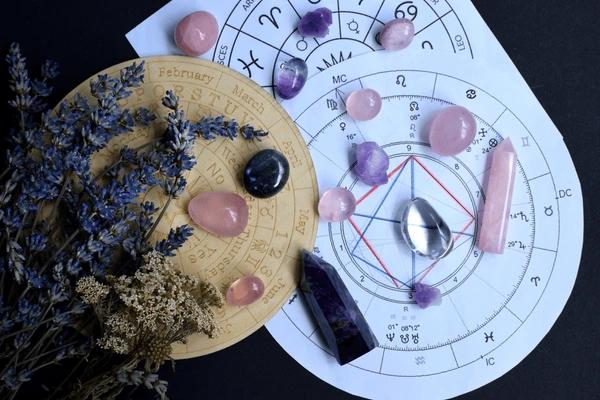Discover what makes Vedic Astrology different from Western Astrology and how understanding both systems can deepen your astrological insights. Learn through insights from Advanced Astrology Books for Astrologers and ancient wisdom.
Astrology has fascinated humankind for thousands of years — shaping cultures, inspiring civilizations, and guiding personal journeys. Yet, while the stars above us remain the same, the way they are interpreted differs remarkably across traditions.
Among these traditions, Vedic Astrology and Western Astrology stand out as two of the most recognized systems in the world today. Both strive to understand human life through celestial influences, but they differ deeply in philosophy, calculation methods, and interpretive frameworks.
Let’s explore what truly sets these two systems apart — not through comparison alone, but by appreciating the beauty and purpose behind each.

Vedic Astrology, or Jyotish Shastra, originates from ancient India. It’s considered one of the six limbs of the Vedas — the sacred texts of Hindu philosophy. The word Jyotish means “science of light,” symbolizing the light of knowledge that dispels darkness about one’s destiny.
Vedic Astrology focuses deeply on karma and dharma — the cause-and-effect principle that governs human life. It views birth as a continuation of previous lifetimes, where celestial placements represent past actions and their consequences.
Key Characteristics:
Western Astrology evolved from the ancient Greeks, Babylonians, and Romans. Over time, it merged with Renaissance humanism, becoming a system that blends celestial mechanics with psychological understanding.
Instead of focusing primarily on destiny, it leans toward personal development, personality traits, and free will. Western astrology often describes one’s potential and choices rather than predetermined fate.
Key Characteristics:
This is the most fundamental distinction between the two systems.
In essence:
If you’re a Leo in Western astrology, you might actually be a Cancer in the Vedic chart — a difference that often surprises astrology enthusiasts.
Vedic astrology centers on life path and destiny — analyzing how planetary placements reflect karmic debts and rewards.
A trained astrologer may offer remedial measures, like wearing gemstones, performing rituals, or chanting mantras, to mitigate challenging planetary influences.
Western astrology highlights personality development and emotional growth.
The idea is to understand yourself better and evolve consciously.
The Sun, Moon, and Ascendant signs form the personality triad, shaping your conscious, emotional, and outward self.
Vedic Astrology employs advanced predictive systems like:
Western Astrology predictions are more interpretive:
Both systems aim to forecast trends — yet Vedic focuses on destiny cycles, while Western emphasises growth cycles.
You can also check it out:- How astrology can enhance meditation practices
Each system mirrors the worldview of its originating civilization — one spiritual and cyclical, the other humanistic and evolutionary.
Learning both forms of astrology can provide a more complete astrological picture.
For instance:
Modern astrologers often integrate both systems for deeper insight, especially through Advanced Astrology Books for Astrologer, which bridge ancient wisdom with modern research.

1. Which astrology system is more accurate — Vedic or Western?
Both are accurate in their own ways. Vedic astrology excels in precision and predictive accuracy, while Western astrology is stronger in psychological and behavioral insights.
2. Can someone use both systems together?
Absolutely. Many modern astrologers blend them — using Vedic for timing and karmic lessons, and Western for personality exploration.
3. Why are zodiac signs different in both systems?
Because Vedic uses the sidereal zodiac (based on fixed stars), while Western uses the tropical zodiac (based on the Sun and seasons). This results in about a 23-degree difference.
4. What is the importance of the Moon in Vedic Astrology?
The Moon represents the mind, emotions, and inner stability. It’s considered more crucial than the Sun for assessing one’s mental and emotional landscape.
5. Is it necessary to study astrology formally?
Not necessarily, but studying through authentic sources or structured astrology books enhances understanding and application accuracy.
Vedic and Western Astrology may seem like two different languages of the sky — one ancient and spiritually rooted, the other modern and psychological. Yet both speak of the same truth: that the universe mirrors human consciousness.
The deeper you explore, the more you realise they aren’t in competition but in conversation. Together, they weave a narrative of destiny and choice, karma and creativity, the past and the present.
Understanding both systems expands not just your astrological knowledge but also your view of life itself — helping you navigate existence with clarity, compassion, and cosmic awareness.